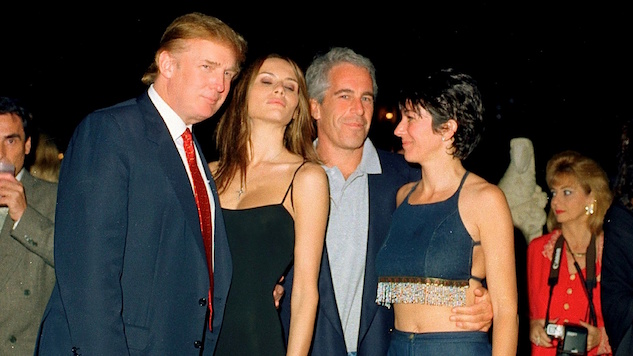These facilities have been dealing with rising levels of violence and other safety problems
《紐約時報》去年的一項調(diào)查顯示,
as the Trump administration has curtailed hiring in its quest to shrink the government,
由于特朗普政府縮減政府規(guī)模,削減招聘,
according to an investigation by The New York Times last year.
這些監(jiān)獄一直存在暴力不斷升級之類的問題。
Some prisons have been so pressed for guards that they have forced teachers, nurses, cooks and other support staff to step in.
部分監(jiān)獄由于看守人數(shù)過于緊缺,迫使監(jiān)獄里的教職人員、護(hù)士、廚師和其他后勤人員都要兼顧部分看守工作。
That can lead to security risks because the substitute workers are often less familiar with the inmate population than the regular guards
由于這些替補看守往往不如正規(guī)看守熟悉囚犯,可能錯過昭示問題正在萌芽的線索,
and can miss cues indicating that trouble is brewing.
繼而帶來安全隱患。
The wing where Mr. Epstein was housed, 9 South, is the less restrictive of the jail’s two most secure units,
該監(jiān)獄有兩個最高安全級別的單元,這里關(guān)押著數(shù)十名囚犯,通常兩人一組關(guān)押在狹小的牢房內(nèi),
holding dozens of inmates, usually in groups of two in small cells.
關(guān)押愛普斯坦的算是兩個單元中監(jiān)管較松的一個。
There, he was allowed one hour of recreation per day and could shower every two to three days, according to prison officials.
據(jù)該監(jiān)獄的獄警透露,愛普斯坦每天有一個小時的娛樂時間,每兩到三天還能洗一次澡。
Aside from meetings with lawyers, his contact with the outside world was severely limited.
除了與律師會面,他與外界的接觸十分有限。

Beyond its isolation, the wing is infested with rodents and cockroaches,
除了隔絕問題,監(jiān)獄該側(cè)的牢房常有老鼠和蟑螂泛濫成災(zāi),
and inmates often have to navigate standing water — as well as urine and fecal matter — that spills from faulty plumbing,
囚犯們經(jīng)常要在因管道故障泄漏的積水——還有尿液和糞便——中穿行,
accounts from former inmates and lawyers said.
據(jù)曾在該監(jiān)獄服刑的多名囚犯和幾位律師透露。
One lawyer said mice often eat his clients’ papers.
一位律師說,他客戶的文件資料就經(jīng)常遭到老鼠破壞。
Mr. Epstein tried desperately to ingratiate himself with fellow inmates, the consultant who had spoken with inmates said.
愛普斯坦曾拼命討好獄友,上文提到的那位曾和該監(jiān)獄的多名囚犯交談過的顧問透露。
He had heard from two inmates that Mr. Epstein transferred money into at least three other inmates’ commissary accounts —
兩名囚犯曾向他透露,愛普斯坦曾向至少三名獄友的購物卡里轉(zhuǎn)賬——
an exercise often used in the jail to buy protection.
監(jiān)獄里花錢尋求庇護(hù)的一種常規(guī)操作。
It was clear early on that Mr. Epstein was desperate to leave 9 South.
一開始,愛普斯坦就很明顯地迫不及待地想要離開南9號房間。
After his arrest, he asked a judge to release him on a substantial bond, pledging to put up his Manhattan mansion and his jet as collateral.
被捕后,他試圖以一筆可觀的保證金,外加承諾將他在曼哈頓的豪宅和飛機作為抵押為條件,請求法官釋放他。
He would hire round-the-clock security guards, he said, who would “virtually guarantee” that he would not flee.
他還表示可雇傭全天候保安,“真正確保”他不會逃跑。
The judge denied the request on July 18, and Mr. Epstein stayed in 9 South.
7月18日,法官拒絕了這一請求,愛普斯坦被投入了南側(cè)9號監(jiān)獄。
Five days later, Mr. Epstein was found unconscious in his cell, with marks on his neck.
五天后,被發(fā)現(xiàn)時,愛普斯坦已經(jīng)昏迷不醒,脖子上還有傷痕。
His cellmate, Nicholas Tartaglione, a former suburban New York police officer accused of a quadruple homicide,
他的獄友尼古拉斯·塔塔格里奧尼,此人曾是紐約郊區(qū)的一名警察,后因犯了四次蓄意殺人罪入獄,
summoned guards, and Mr. Epstein was revived, according to Mr. Tartaglione’s lawyer, Bruce Barket.
叫來了獄警,愛普斯坦這才蘇醒過來,塔塔格里奧尼的律師布魯斯·巴基特透露。
譯文由可可原創(chuàng),僅供學(xué)習(xí)交流使用,未經(jīng)許可請勿轉(zhuǎn)載。



